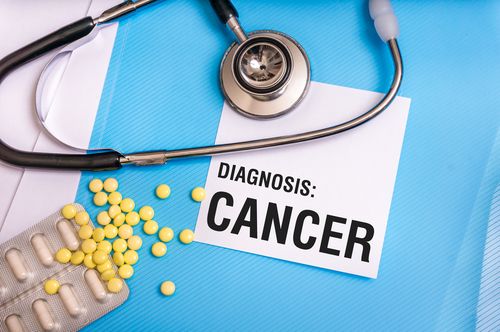AAV Patients on Immunosuppressants at Higher Risk of Cancer, Especially Skin Cancer, Swedish Study Finds
Written by |

People with ANCA-associated vasculitis (AAV) are much more likely to develop a type of skin cancer called squamous cell carcinoma — nearly 13 times more likely — than those without this disease, a population-based study from Sweden reports.
Other cancers, especially bladder and pancreatic cancer, were also more frequent in AAV patients, but only among those with higher cumulative doses of cyclophosphamide.
The study, “Malignancies in patients with ANCA-associated vasculitis – A population based cohort study” was published in The Journal of Rheumatology.
As AAV patients live longer, concern is growing about the potential side effects of their immunosuppressive treatments. Dampening the immune system makes people more susceptible to infections, and some studies suggest it increases the risk of cancer, although findings have been inconsistent.
Researchers examined the long-term cancer history of 195 AAV patients living in southern Sweden, who were diagnosed with any AAV subtype between 1997 and 2010. Data was collected until December 2015, with a median follow-up time of eight years.
During this period, a total of 52 people (27%) developed 60 malignancies, including 26 cases of squamous cell carcinoma, seven cases of prostate cancer, five cases of bladder cancer and of colorectal cancer, three cases of lung cancer and of pancreatic cancer, and two cases of breast cancer.
The median time from AAV diagnosis to a first cancer diagnosis was five years, and 29 of the 52 patients with cancer died during follow-up.
Compared to the expected incidence rates for the general population, people in this study were 2.8 times more likely to have cancer of any kind. Rates were especially higher for squamous cell carcinoma — 12.9 times higher — followed by pancreatic cancer (7 times higher), and bladder cancer (4.3 times). No significant difference was seen in rates of other cancers between these two groups.
“In contrast to recent publications assessing malignancy risk in patients with AAV, we show in this population-based cohort of patients a persistent increased risk for overall malignancy, bladder cancer, and pancreatic cancer as well as a markedly increased risk for SCC [squamous cell carcinoma],” the researchers wrote.
Squamous cell carcinoma was more common in patients with eosinophilic granulomatosis with polyangiitis (EGPA), those without ANCA antibodies, patients younger than 60 at diagnosis, and those with renal (kidney) transplants, the study also found.
For cancers other than squamous cell carcinoma, risk factors were a prior history of cancer and a kidney transplant, while EGPA and a negative ANCA test worked as protective factors.
Researchers also examined if higher cumulative doses of cyclophosphamide — an immunosuppressant — were linked to higher cancer incidences. They found that cancers other than squamous cell carcinoma were not more common in patients getting less than 10 g of cyclophosphamide in total.
Squamous cell carcinoma, however, was much more common (54 times more frequent) in patients not using cyclophosphamide, which researchers attribute to these people receiving “other oral immunosuppressive drugs such as azathioprine, known to increase the risk of non-melanoma skin cancer including SCC.”
“We show a persistent risk for bladder cancer and pancreatic cancer in patients receiving [cyclophosphamide at] > 10 g, indicating that the risk for the development of solid tumors in patients treated for AAV should not be totally ignored,” the researchers concluded.





